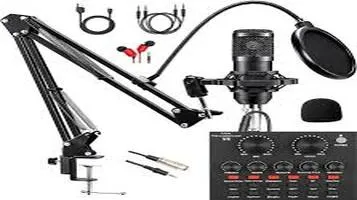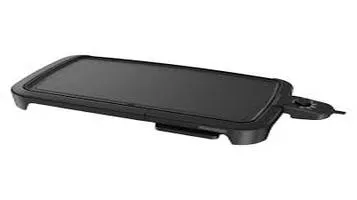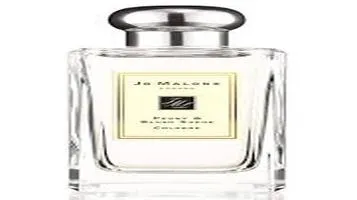Best Audio Recording Equipment for Podcasts: A Comprehensive Review
When selecting the best audio recording equipment for podcasts, clarity and reliability are key. A high-quality microphone, such as the Shure SM7B or the Audio-Technica AT2020, ensures crisp vocal capture, minimizing ambient noise. For portability and versatility, consider a USB microphone like the Blue Yeti, which offers easy plug-and-play functionality. An audio interface, such as the Focusrite Scarlett 2i2, is essential for connecting XLR microphones to your computer, providing superior sound quality and control. Monitoring your recordings with a pair of closed-back headphones, like the Sony MDR-7506, helps identify any audio issues. For seamless editing and mixing, a reliable digital audio workstation (DAW) like Audacity or Adobe Audition is indispensable, ensuring your podcast sounds professional and polished.

In recent years, the podcasting world has exploded with diverse content, ranging from gripping true crime stories to insightful business advice. To stand out and deliver high-quality audio, investing in the right audio recording equipment is crucial. Whether you're a novice podcaster or a seasoned pro, having the best gear can elevate your content to a professional level. Here’s an 800-word review of some of the best audio recording equipment for podcasts available today.
1. Microphones
Shure SM7B
The Shure SM7B is perhaps the most iconic podcasting microphone on the market. Known for its rich, warm sound and exceptional noise rejection, this dynamic microphone is a favorite among top podcasters and broadcasters. Its cardioid pattern ensures that background noises are minimized, focusing solely on your voice. While it’s on the pricier side, the investment is well worth it for the clarity and depth it provides.
Audio-Technica ATR2100x-USB
For those looking for a more budget-friendly option, the Audio-Technica ATR2100x-USB is an excellent choice. This versatile microphone features both USB and XLR outputs, making it suitable for beginners and professionals alike. It offers excellent sound quality for the price and is highly portable, allowing podcasters to record on-the-go. The ATR2100x-USB also comes with a built-in headphone jack for real-time monitoring.
2. Audio Interfaces
Focusrite Scarlett 2i2 (3rd Gen)
The Focusrite Scarlett 2i2 is a top-tier audio interface that converts your analog microphone signal into a digital one. Its high-quality preamps ensure that your recordings are clear and free from distortion. The 2i2 offers two inputs, making it ideal for one-on-one interviews or co-hosted shows. Its compact design and user-friendly interface make it a favorite among podcasters.
PreSonus AudioBox USB 96
Another excellent option is the PreSonus AudioBox USB 96. With two combo mic/instrument inputs, this audio interface is versatile and reliable. It also comes bundled with Studio One Artist DAW software, providing a complete recording solution out of the box. The PreSonus AudioBox is known for its durability and sound quality, making it a solid choice for podcasters at any level.
3. Headphones
Sony MDR-7506
The Sony MDR-7506 headphones are a staple in the audio industry. Known for their comfort and accurate sound reproduction, these headphones are perfect for monitoring your recordings. They are closed-back, which helps in isolating external noise, allowing you to focus solely on your audio. The MDR-7506 headphones are also incredibly durable, making them a long-lasting investment.
Audio-Technica ATH-M50x
Another popular choice is the Audio-Technica ATH-M50x. These headphones offer exceptional sound clarity and deep bass response, ideal for detailed audio monitoring. They come with detachable cables, adding an extra layer of convenience. The ATH-M50x headphones are also praised for their comfort, making them suitable for long recording sessions.
4. Recording Software
Adobe Audition
Adobe Audition is a professional-grade audio editing software that offers a wide range of features for podcasters. From multitrack editing to advanced noise reduction, Adobe Audition provides all the tools you need to produce high-quality podcasts. Its user-friendly interface and extensive library of tutorials make it accessible even for beginners.
Audacity
For those on a tight budget, Audacity is a fantastic free alternative. Despite being free, Audacity offers a robust set of features, including multitrack editing, various effects, and noise reduction tools. It’s an open-source software that has been a favorite among podcasters for years. While it may not have the advanced features of Adobe Audition, it’s more than capable of producing professional-quality audio.
5. Pop Filters and Boom Arms
Aokeo Professional Microphone Pop Filter
A pop filter is essential for reducing plosive sounds that can distort your audio. The Aokeo Professional Microphone Pop Filter is a budget-friendly option that does an excellent job of minimizing these unwanted sounds. Its dual-layer design ensures that your recordings are clear and professional.
RODE PSA1 Swivel Mount Studio Microphone Boom Arm
A boom arm is another useful accessory that provides flexibility in microphone placement. The RODE PSA1 is a highly durable and versatile boom arm, allowing you to position your microphone precisely where you need it. Its silent operation ensures that your recordings remain free from unwanted noise.
Conclusion
Investing in high-quality audio recording equipment is essential for producing professional-sounding podcasts. Whether you choose the iconic Shure SM7B microphone or the versatile Audio-Technica ATR2100x-USB, pairing it with a reliable audio interface like the Focusrite Scarlett 2i2 or the PreSonus AudioBox USB 96 will ensure that your recordings are top-notch. Complement these with industry-standard headphones like the Sony MDR-7506 or Audio-Technica ATH-M50x, and you’re well on your way to creating engaging, high-quality podcasts. Don’t forget to use reliable recording software and essential accessories like pop filters and boom arms to complete your setup. Happy podcasting!






